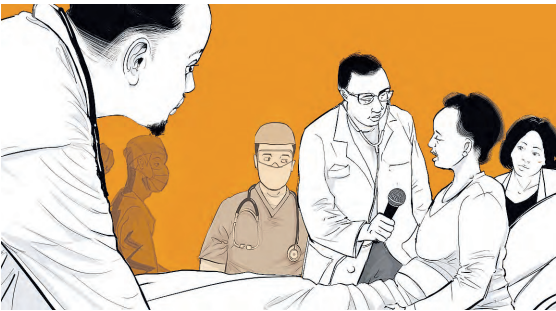

Behind every statistic about healthcare inequity is a human story—often untold.
Policies are written, interventions designed and systems overhauled, but the question lingers: where is the patient in these conversations?
In surgical care, a field that demands precision and empathy, the patient’s voice is often drowned out by data, logistics and the surgeon’s scalpel.
Yet, it is their voice that holds the key to crafting truly impactful healthcare solutions.
Consider Mary, a 34-year-old mother of two from rural Kenya.
Diagnosed with a uterine tumour, she faced months of travelling between clinics, hospitals and specialists.
The journey drained her family’s resources, and by the time she reached a surgical centre, the tumour had advanced.
While Mary underwent surgery, the delays in her care led to complications that might have been avoided had the system been designed with her challenges in mind.
Mary’s experience is not unique.
Across Africa, millions face similar struggles—barriers of distance, cost, stigma, and lack of information.
Yet, when policies are drafted or interventions proposed, how often are these realities considered?
The patient’s voice, rich with insights about lived experiences, is glaringly absent from the table.
Healthcare, at its core, exists to serve patients.
Their perspectives provide a vital lens to identify gaps in care, understand cultural and logistical barriers, and design solutions that are practical and humane.
For instance: Transportation challenges: Patients often face insurmountable distances to reach surgical facilities.
Policies addressing surgical access must consider the cost and availability of transportation.
Financial barriers: A significant proportion of patients forego surgery due to its cost, even when public insurance schemes exist.
Patients can inform policymakers about hidden costs, such as post-surgical rehabilitation.
Cultural sensitivities: In some communities, stigma or lack of trust in the healthcare system leads to delays in seeking care.
Engaging patients helps build culturally sensitive interventions.
Ignoring these voices risks creating solutions that look effective on paper but fail in practice.
Surgeons and other healthcare professionals, with their close proximity to patients, are uniquely positioned to amplify these voices.
In my practice, I have witnessed the transformative power of listening to patients.
Their stories go beyond medical histories— they reveal systemic gaps that need attention.
A powerful example of amplifying the patient’s voice is SurgiVoices, a podcast by Dr Pierrette Ngutete Mukundwa in Rwanda.
Dr Mukundwa’s goal goes beyond storytelling. By collecting and sharing these narratives, she uses them as tools to drive policy change in Rwanda.
These voices have sparked conversations about how healthcare systems can better align with the needs of patients, ensuring that surgical care is not only available but also accessible and respectful of individual and community realities.
This approach exemplifies how patient stories can bridge the gap between healthcare providers and policymakers.
It’s not just about treating patients—it’s about listening to them, learning from their experiences, and designing systems that prioritise their voices.
To make the patient’s voice central to surgical care policy, we need deliberate actions such as patient advisory boards:
Establish forums where patients can share their experiences directly with healthcare planners and policymakers; and surveys and focus groups:
Regularly gather data on patient experiences, ensuring that interventions address real needs.
Transparent communication: Engage patients in discussions about their care, from diagnosis to recovery, to foster trust and better outcomes; and community-led advocacy:
Train patient advocates who can represent their communities in healthcare debates.
The success of healthcare systems depends not only on infrastructure, funding or technology but also on empathy.
Patients are not mere recipients of care; they are partners in the healthcare journey.
As we advocate equitable surgical access, let us not forget the voices that matter most.
The scalpel can heal wounds, but it is the patient’s voice that can heal the system.
The author is an orthopaedic surgeon and a 2024 Global Surgery Advocacy Fellow.


 © The Star 2024. All rights reserved
© The Star 2024. All rights reserved